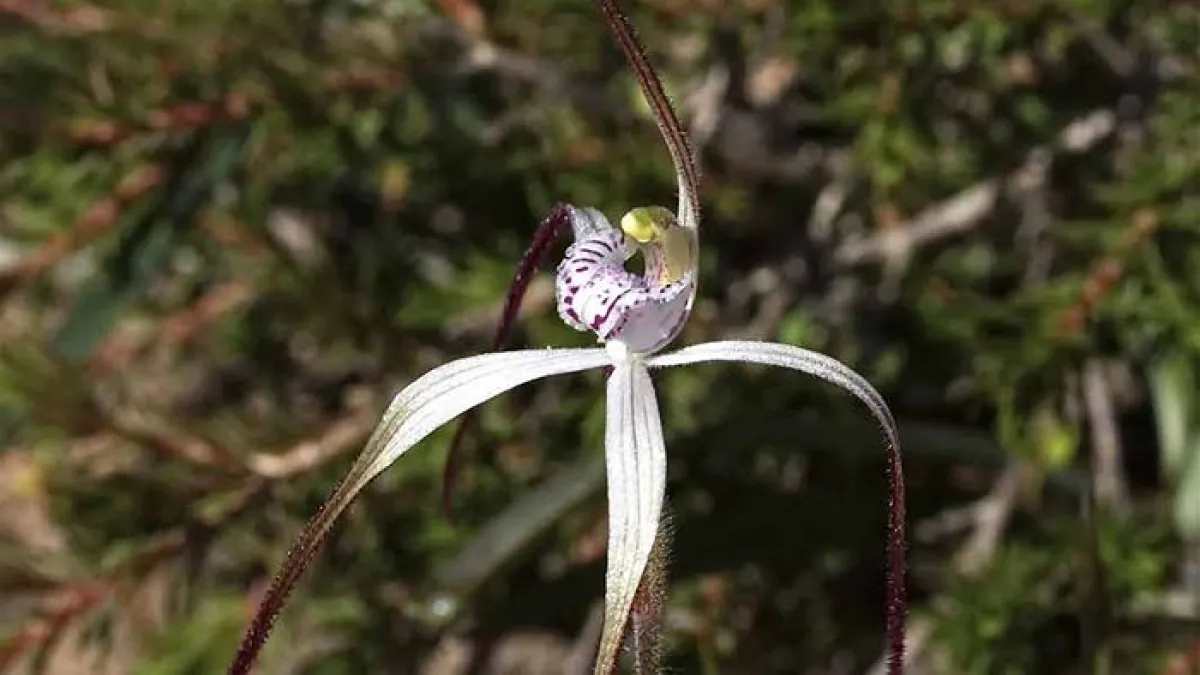Molecular mimicry and sexual deception

Orchids are valued the world-over for their delicate beauty and fragrance, but for wasps they hold a different kind of appeal: sex appeal.
Orchids rely on attracting insects, such as wasps, to act as pollinators. Researchers from the Peakall Lab at the ANU Research School of Biology wanted to uncover how specific varieties of orchids—in this case, the spider orchid—seem to know exactly what it is that a particular wasp is “into”, so to speak.
It all comes down to smelling good. Smelling really, particularly, uniquely good.
Using chromatography and mass spectrometry, the researchers analysed the pseudo-pheromones produced by the orchids to attract male wasps and found the most complex array of chemical combinations seen in the plant world. Some of the pseudo-pheromones they uncovered were even previously unknown to science.
This research cemented the position of the Peakall Lab as world-leaders in pseudo-pheromone research, and also the status of orchids as world-leading pick-up artists.
This article is one of a set featuring the achievements and memorable occasions in the History of Biology at ANU.
